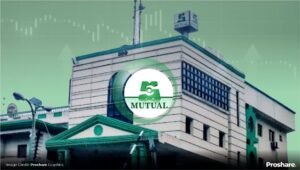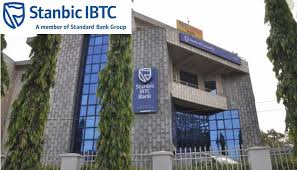
…Blames FG for causing more havoc to Nigerians under a bad economy
By David Akinmola
Private car owners in the country have condemned the Federal Government’s action through its agency, the National Insurance Commission (NAICOM) for the increased premium rate of Motor Third Party Insurance for Nigerians, from N5,000 to N15,000 effective by 1st of January, 2023, despite the bad economic situation in the country.
Third-party motor insurance is one of the compulsory classes of insurance and the most popular among the six compulsory insurance policies stipulated by the Insurance Act 2003.
The new increment came after several deliberations by the industry’s players, to review the rate at industry committee meetings from 2021 to date, agreed on September this year initially as the deadline for the implementation of the new premium rate after considering other African market’s rates but all efforts proofed abortively.
The car owners, who spoke to this medium at the weekend at the NNPC Filling Station, Okota/Isolo Local Government Area of Lagos and other filling stations along Ikotun road lamented that the increment of third-party motor insurance came at the wrong time when Nigerians are suffering from a bad economic situation created the present administration.
One of the drives, Clement prosper, condemned the government on the increment, saying what the underwriting firms need to do is to sensitize Nigerians about insurance at this festive period rather than increased premium rates we cannot afford because of the bad economy.
According to him, coming 2023, we will have more fake insurance certificates, even at N5,000 Nigerians are not paying they prefer buying it at a cheaper price at licenses offices through some of the representatives of the insurance companies, because the companies want to have more customers and also remain in business.
Already in the sector, there are concerns about fake insurance certificates which the regulator and players have been trying to address, the huge is still raising its ugly head, thereby robbing the insurance industry yearly and putting third-party victims in a dilemma each time and accident occurs.
This is because only about 3.4 million of the over 13 million vehicles in Nigeria have genuine third party motor insurance policies as of the second quarter of this year. This represents a rise from the 2.94 million policies as of April 26, 2021.
The market analysts on their part said that the major causes for the low insurance penetration in Nigeria could be attributed to inadequate access to information technology; weak regulatory framework; lack of skilled personnel; poor knowledge of insurance service by the prospective assured as well as the low standard of living.
Given the low penetration the industry is saddled with over the years, the report has it that most third-party motor insurance policies are being sold at shopping malls and licensing offices at a ridiculous rate of between N1,000 and N1,500 as against the official rate of N5,000 which comes with benefits of third party damage of the property but now the same N5,000 has been increased by the government.
Checks by ORIMIX TIMES revealed that the insurance sector loses over N160 billion to fake motor insurance policies yearly. While over 9.4 million vehicles are going on Nigerian roads with fake motor insurance certificates, only about 2.74 million are having genuine policies, according to Nigerian Insurance Industry Database (NIID).
NIID, a verification platform, initiated and owned by the Nigerian Insurers Association (NIA), is the central database of all compulsory insurance in Nigeria serving as a tool for checkmating fake compulsory insurance certificates.
The immediate past chairman of, the Nigerian Insurers Association (NIA), Ganiyu Musa, in one of the industry’s gatherings, said the 2.74 million vehicles were captured on the Nigeria Insurance Industry Database (NIID), implying that over 70 percent of the vehicles have either fake insurance certificates or are uninsured.
Musa said that to ensure that compliance becomes effective across the country, the enforcement of the compulsory insurance has to be total, adding that the NIA is working with the Lagos State government in the enforcement and validation of genuine compulsory third-party insurance made mandatory by law through automatic number plate recognition (ANPR) device of VIS through NIID verification platform.
Musa added that the partnership with the Lagos State government will be replicated in other parts of the country so that people can be sure that what they have and carry as insurance is only from genuine and registered insurance companies.
Data from the National Bureau of Statistics (NBS) show that in 2018, the number of registered vehicles was 4,868,294 for private, 6,799,586 for commercial, and 5,912 for diplomatic.
The benefit of having a third-party insurance policy is to protect vehicle owners against third-party damage – either property, life, or both, and it is made compulsory in the Insurance Act 2003.
This means that in the event of an accident, the policyholder has a third-party property damage limit of up to N1 million and no limit to life in the case of death or permanent disability.
Now, if your policy document is not captured in the NIID, then that policy document you have as a motor third party insurance certificate is fake and worth nothing, the NIA said.
“You can verify it yourself, right from anywhere you are. This has not only brought a check to fake documents but has also empowered you to make claims on all third-party liabilities.”
Concerned about the spate of fake insurance certificates in the system, Hon. Oluyemi Adewale Taiwo, a House of Representatives member, had raised a motion on the need to investigate the incidences of fake insurance in the country.
Following the adoption of the motion, the House had mandated its Committee on Insurance and Actuarial Matters to investigate the incidences of fake insurance certificates and report back within six weeks for further legislative action. It also urged insurance companies and brokerage firms to have operational offices in major cities in the country.
Presenting the motion, Taiwo noted that the Insurance Act, 2003 mandates all motorists to have a minimum third party motor insurance policy in place and that section 68 of the Act stipulates that: “No person shall use or cause or permit any other person to use a motor vehicle on a road unless a liability which he may thereby incur in respect of damage to the property of the third party is insured with an insurer registered under this Act.”
He explained that the statutory laws of the country stipulate that no motorist should ply Nigerian roads without having a genuine insurance certificate.
However, most motorists have continued to show absolute disregard for the statutory requirement.
The overall assessment of the insurance industry performances points to low insurance penetration which has been regarded as one of the lowest and worst in Africa with a 0.5 percent penetration rate as of March 2022.
Other insurance classes such as health insurance and marine insurance are not left out in the low penetration syndrome.
According to a report from Dataphtye, about three percent of Nigerians have health insurance which is provided mostly by employers. Of this three per cent, men have more insurance coverage than women as 56.7 per cent of those covered are male against 43.3 percent of the women.
Speaking, the President, of the Nigerian Council of Registered Insurance Brokers (NCRIB), Rotimi Edu, said that the enforcement of compulsory insurance is still at its low ebb and that the government’s intervention was urgently needed.
He said some of the fake sellers of motor insurance had their offices in some local government secretariats, noting that aside from the loss of revenue, the criminals have created a bad image for the industry.
According to him, most of the unattended claims in motor insurance were victims of fake certificates.
He said: “It was recently reported that the Nigerian insurance industry loses over N160 billion yearly to fake motor insurance racketeers. However, it is disheartening to note that an industry that has been contributing less than one per cent to the gross domestic product, despite its huge potential, loses such a whopping amount of money to fake vendors who contribute nothing to the growth of the nation.
“Some of the insurance policies flying around local government areas are just putting money into people’s pockets. I am aware that the Nigerian Insurers Association deployed technology to curb the proliferation of fake certificates. But I think that enforcement is still at its low speed.






